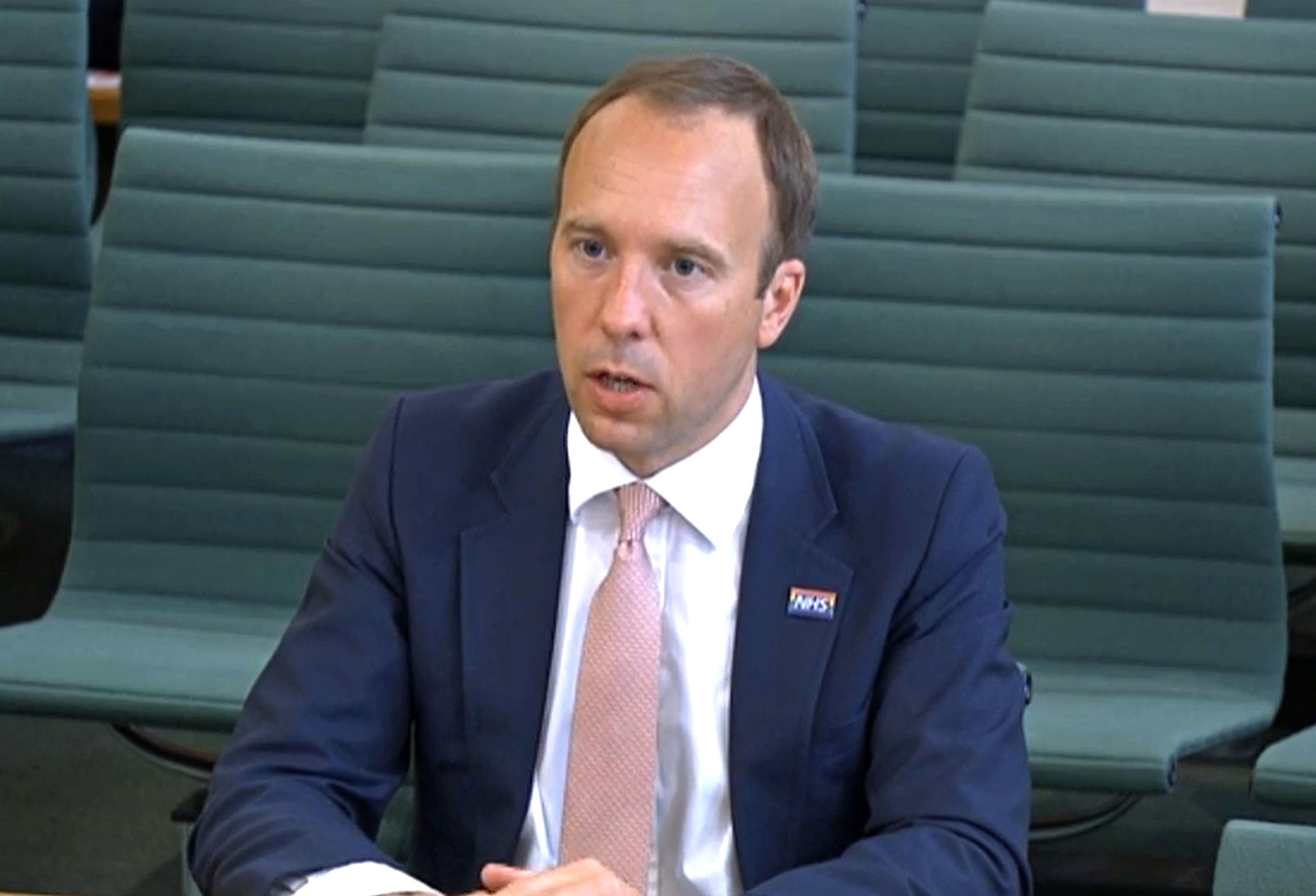Matt Hancock should be dealing with NHS waiting lists – not spending hours on the past
There was something jarring about watching the health secretary spend more than four hours talking about the past on the day that NHS waiting lists hit 5.1 million, writes John Rentoul


Matt Hancock agreed with Dominic Cummings, his tormentor, more than expected. While most of Cummings’s lurid charges against the health secretary fell by the wayside for lack of evidence, Hancock said he “bitterly” regretted that he had failed to overrule the scientific advice at the start of the pandemic in order to shut down society earlier.
To that extent he shared Cummings’s self-criticism of the entire government for being too slow to realise what it was up against. But that was fairly safe ground for the health secretary, because as long as he could claim to have followed the clinical advice, all the condemnation made with the benefit of hindsight bounced harmlessly off him.
As for Cummings’s specific criticisms of him, he was able to sweep them aside because, as he said: “It is telling that no evidence has been provided – there is a reason for that, I think.” He was asked if he knew that Cummings wanted the prime minister to fire him. “Yes, because he briefed the newspapers at the time,” said Hancock. “Or someone briefed the newspapers and I now have a better idea who it was.”
Hancock was also helped by the wild tone of Cummings’s attack on him two weeks ago, which meant that he sounded measured and reasonable when he said he was a “team player” without needing to say that Cummings was not; and that “government has operated better over the past six months” without needing to say that Cummings left the government six months ago.
He concluded his evidence by thanking MPs for giving him “the opportunity to set out the facts and the truth”, without needing to say that Cummings might have set out something different.
That is not to say that Hancock had an easy time. Greg Clark, chair of the science and technology committee, was brilliantly precise in skewering him on the idea that there was a scientific “consensus” that coronavirus was unlikely to be spread by people without symptoms. The Sage minutes at an early meeting on 28 January 2020 had said that there was some evidence of asymptomatic transmission.
These are all important questions, and there are lessons for dealing with future pandemics, mainly about avoiding fixed ideas about new diseases and challenging scientific advice. But there was something jarring about watching the health secretary spend more than four hours talking about the past on the day that NHS waiting lists hit 5.1 million.
The urgent priority now is for the NHS to work on the backlog created by the disaster of coronavirus. The health service is reporting big increases in the numbers of people suffering serious conditions that have been made worse by the delays of the past 15 months. The waiting list numbers include 385,000 people waiting more than a year, 65,000 waiting for a year and a half and 2,700 waiting more than two years.
These are terrible figures, and the health secretary ought to be mobilising the whole power of the state to try to increase NHS capacity as quickly as possible. That ought to be more important than going over rather familiar ground about the handling of the pandemic. Indeed, the territory is so familiar that Clark at one point summed up the committee’s conclusions, even while the interrogation was going on: that the first lockdown was too slow and that testing capacity was insufficient.
Given that both of these conclusions were well aired at the time and especially in the days and weeks that followed the March 2020 lockdown, this does not take us much further forward. Of more interest to next year’s public inquiry might be the arguments over the November 2020 and January 2021 lockdowns, about which Hancock was much less forthcoming.
I know Hancock has to be held accountable, but I would have preferred it if he had spent this morning working on how to ensure that the NHS recovers as quickly as possible from the crisis.



Join our commenting forum
Join thought-provoking conversations, follow other Independent readers and see their replies
Comments